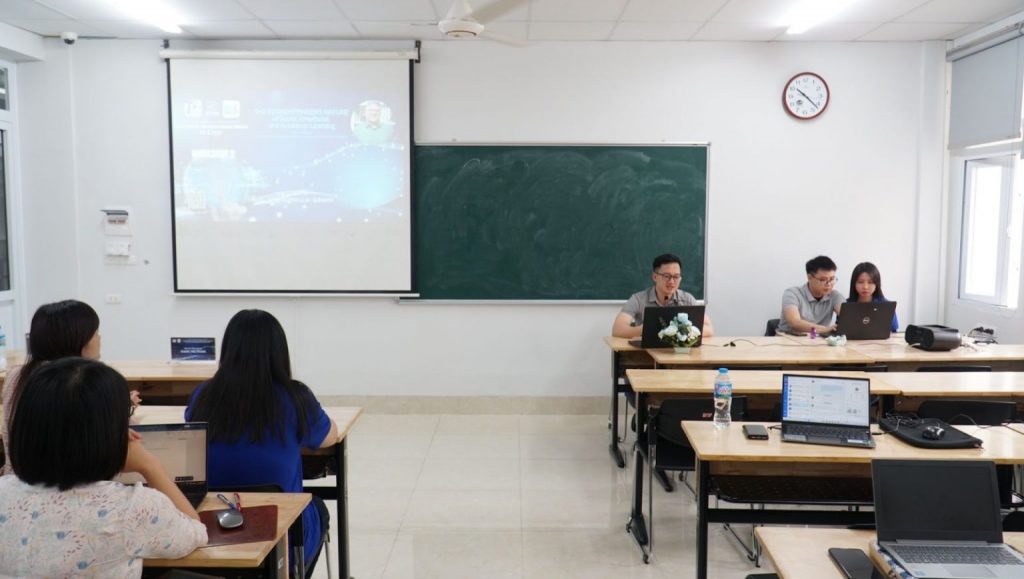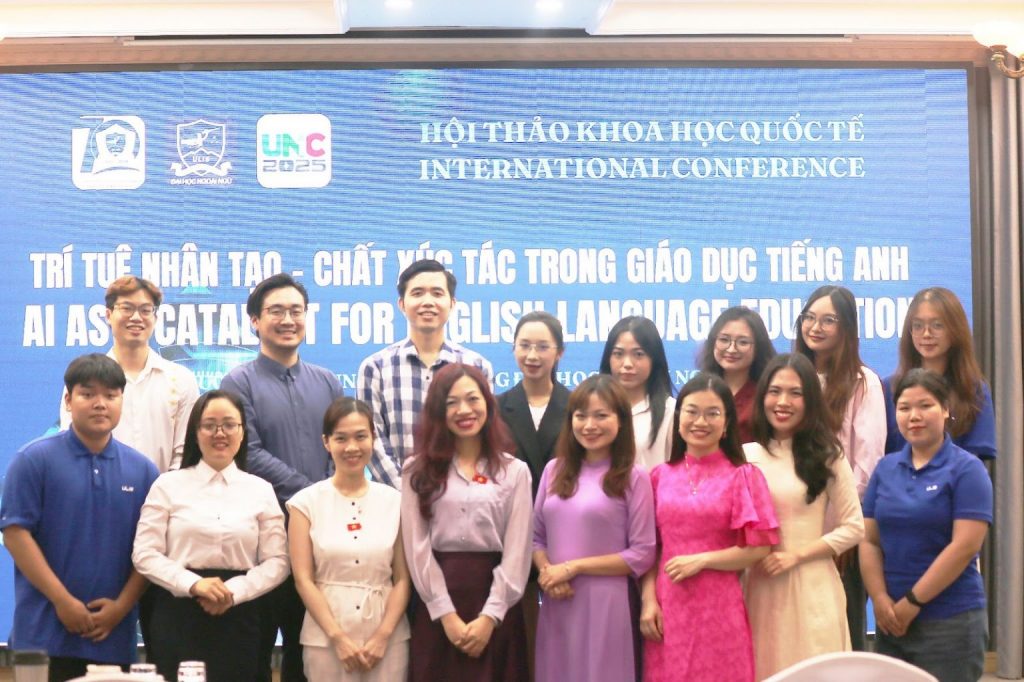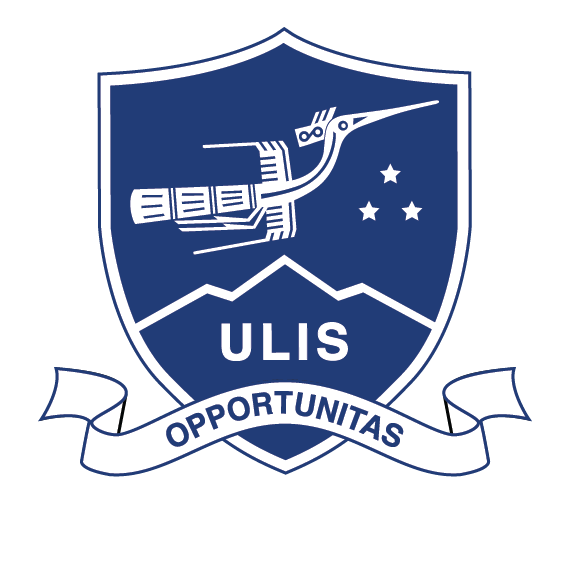International Conference “Artificial Intelligence – A Catalyst for English Language Education”
On April 26th, 2025, the University of Languages and International Studies – Vietnam National University, Hanoi (ULIS – VNU) successfully organized the International Conference themed “Artificial Intelligence – A Catalyst for English Language Education” as part of the UNiC 2025 series, celebrating the 70th anniversary of ULIS. The conference was held in a hybrid format, both onsite and online via Zoom Meeting
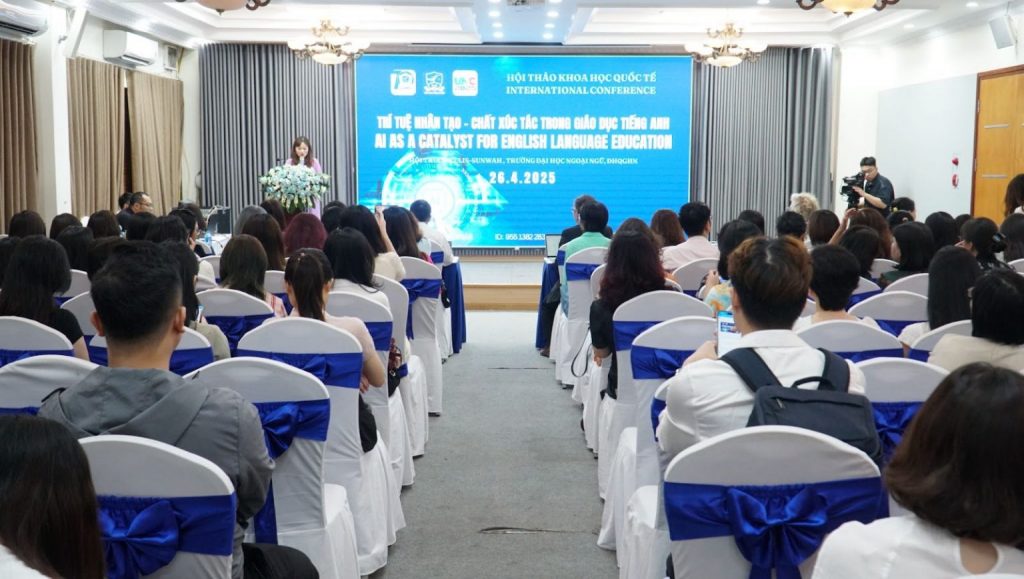
Attending the event from ULIS were Vice President Assoc. Prof. Dr. Lam Quang Đong; Vice President and Head of the Office of Science, Technology, and Development Cooperation Assoc. Prof. Dr. Hoa Ngoc Son; Chairman of the ULIS Scientific and Training Council Prof. Dr. Nguyen Hoa; leaders and lecturers of the Faculty of English Language & Culture (FELC), along with a large number of undergraduate and postgraduate students, and doctoral candidates from both Vietnam and abroad.
Distinguished guests included representatives from the Regional English Language Office (RELO Vietnam), the National Foreign Languages Project, invited scholars, and numerous local and international delegates and presenters.
In his opening remarks, Assoc. Prof. Dr. Lam Quang Đong expressed heartfelt gratitude to the scholars and guests for their presence. He highlighted the significance of the conference as part of the 70th anniversary of ULIS and commended the efforts of FELTE in organizing the event. He expressed hope that this international conference would provide a forum for scholars and researchers from Vietnam and around the world to share ideas and perspectives on emerging issues in language education in the context of digital transformation and, especially, the rise of Artificial Intelligence (AI). The application of AI in English language education and teaching was underscored as a central focus.
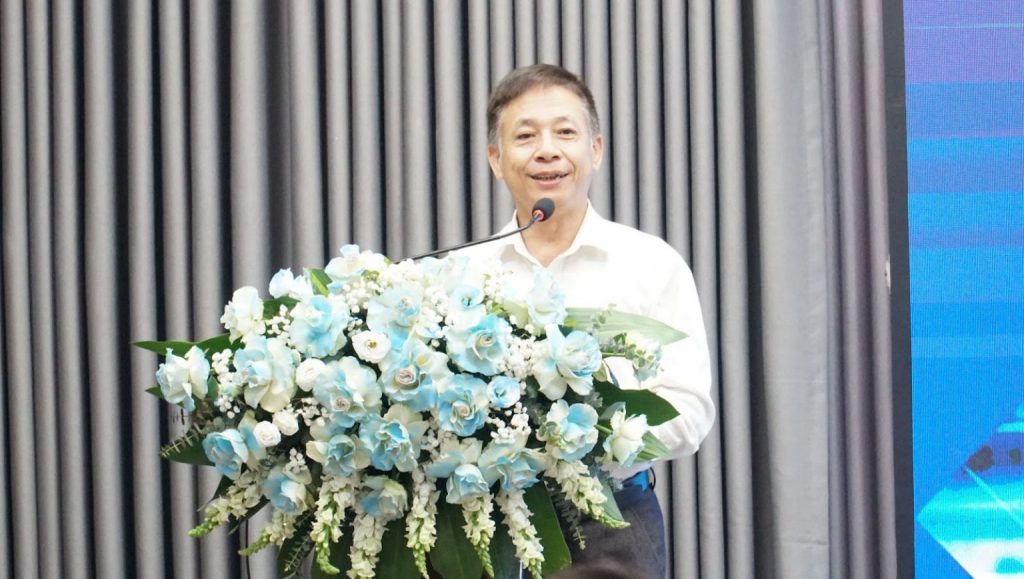
On behalf of the Regional English Language Office (RELO), Mr. Le Thuy Duong – RELO Director for Vietnam – extended his sincere appreciation to ULIS for the long-standing and fruitful collaboration between the two institutions, especially in student and expert exchange programs in the fields of English language assessment and teaching. Reflecting on the collaborative journey between Vietnam and its global partners, and emphasizing the increasing significance of AI in everyday life, Mr. Duong expressed his strong belief that this cooperation could empower ULIS students to not only excel in English but also master AI knowledge, thereby contributing high-quality human resources in technology and English education in the digital era.
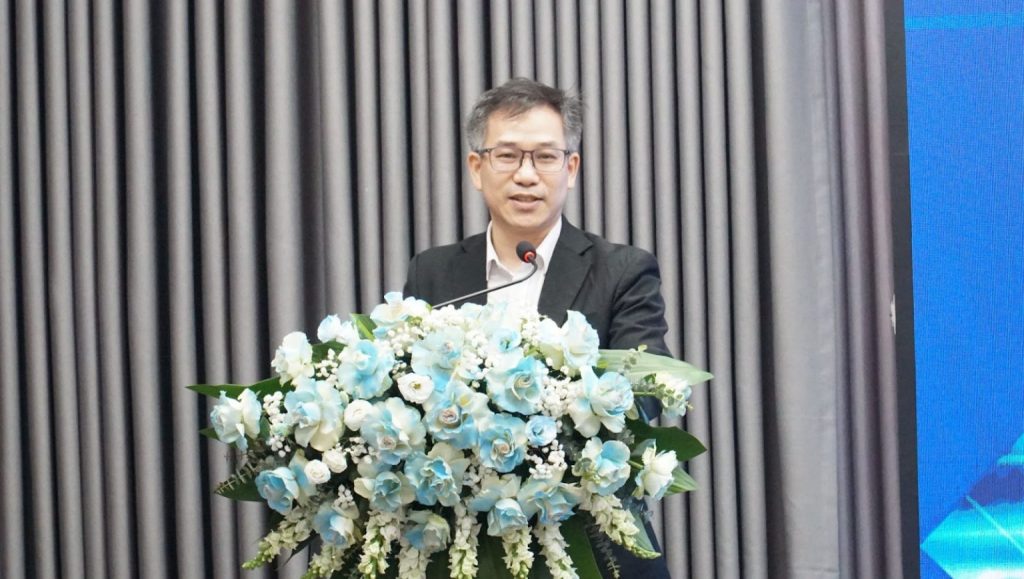
At the plenary session in the morning, Dr. Anne Pomerantz from the University of Pennsylvania (USA) delivered a keynote speech titled “Funny Business: Chatbots and the Future of English Language Education.” Her presentation highlighted how AI functions and transforms human interactions, and also provided practical strategies for designing AI-assisted learning activities, evaluating and critically engaging with AI-generated content, and formulating appropriate academic policies regarding AI use.
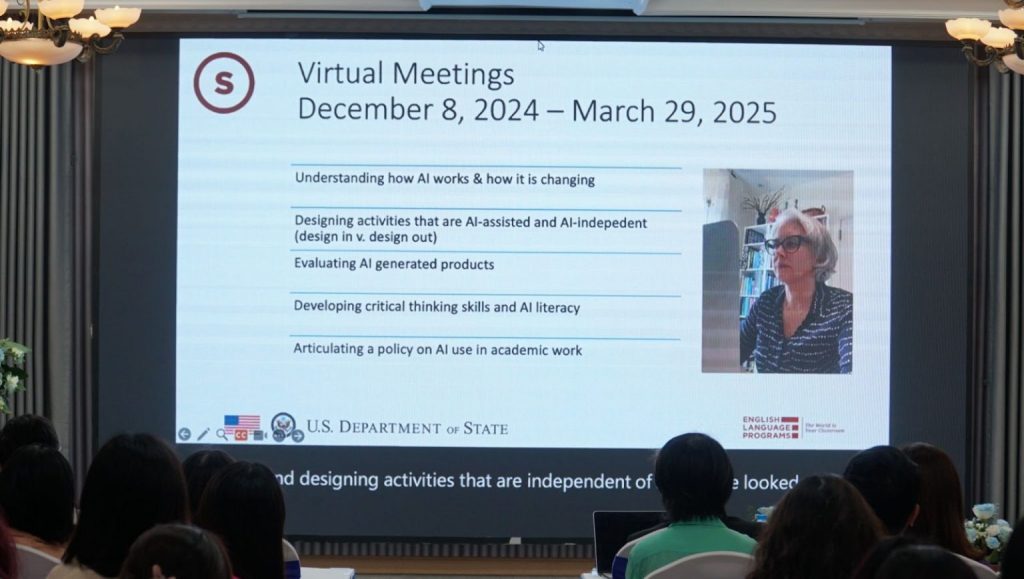
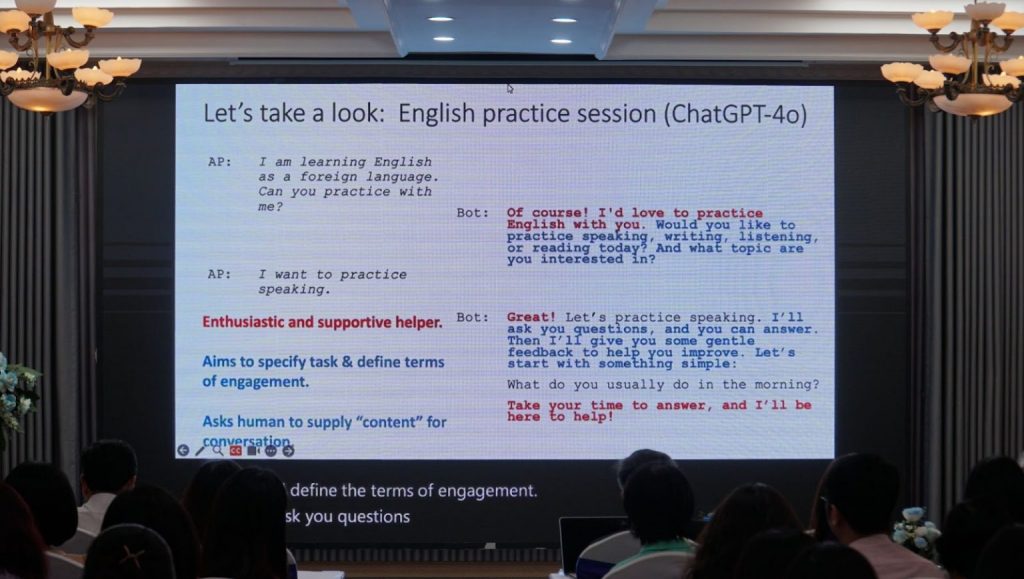
In the afternoon plenary session, Dr. Betsy Nordell presented on the topic “The Interdependent Nature of Social, Emotional, and Academic Learning,” emphasizing the integrated nature of teaching and learning across academic, emotional, and social domains, and stressing their interrelatedness in the educational process.
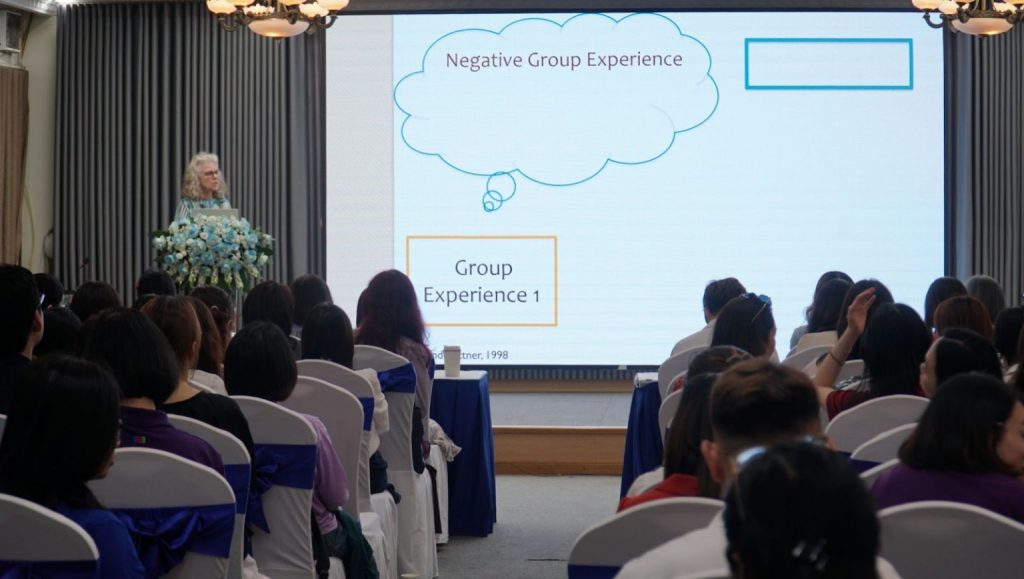
In addition to the plenary sessions, the conference featured six parallel sub-panels, namely: Technology in English Language Education; Innovative Teaching Methodologies; Language Assessment and Materials Development; Translation and Interpreting Studies, Training, and Practice; Applied Linguistics Research; Teaching English to Diverse Learners & Teacher Training and Professional Development, as well as a poster presentation session.
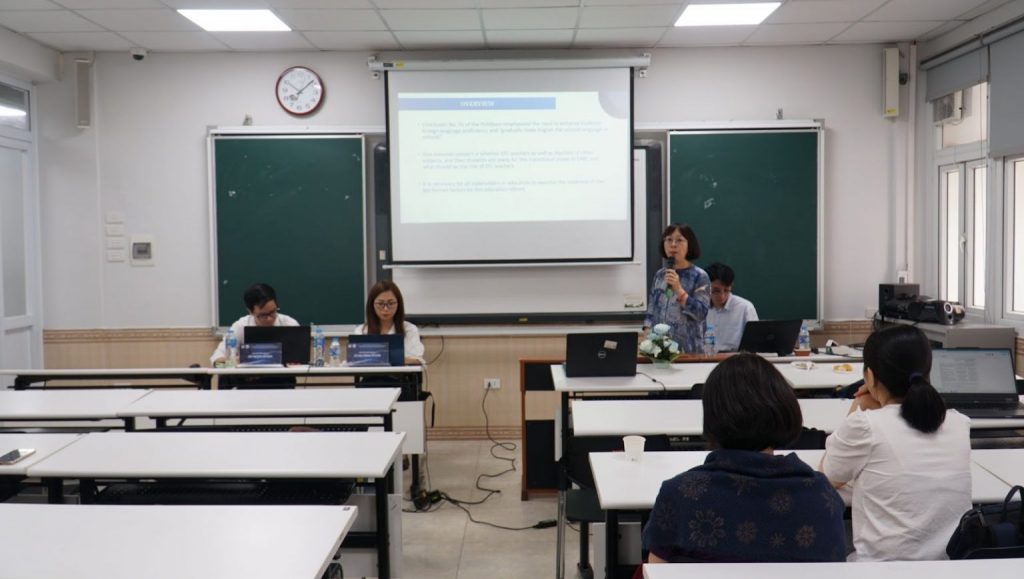
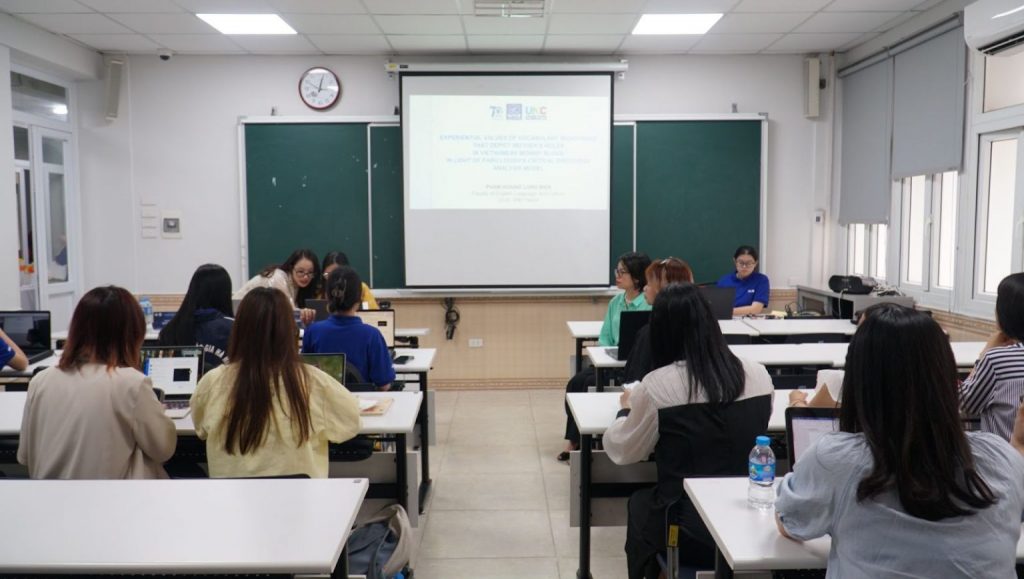
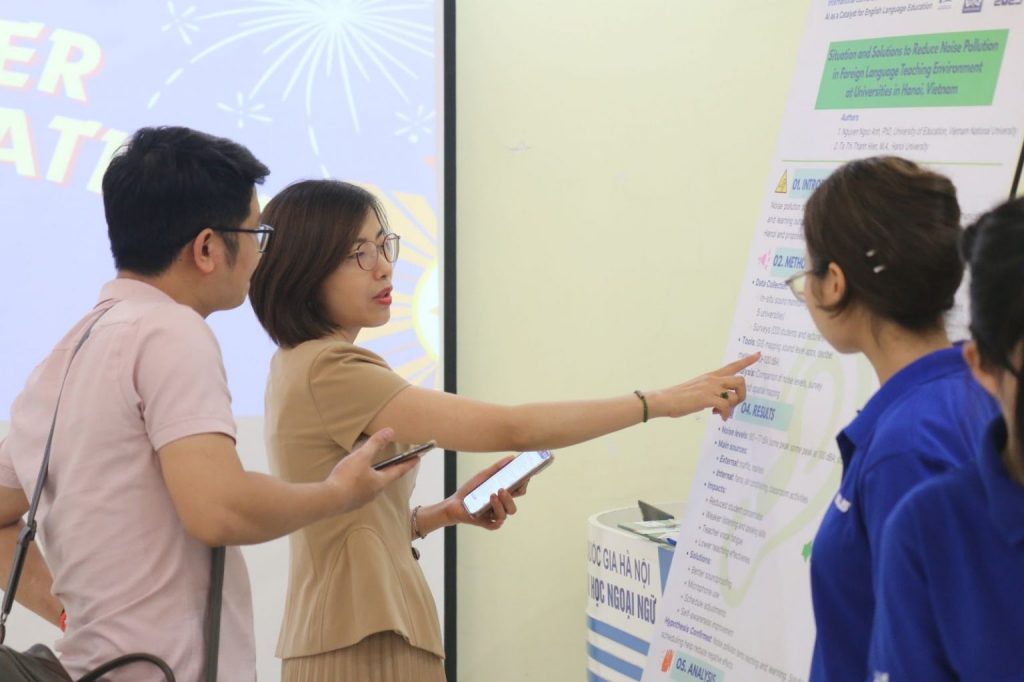
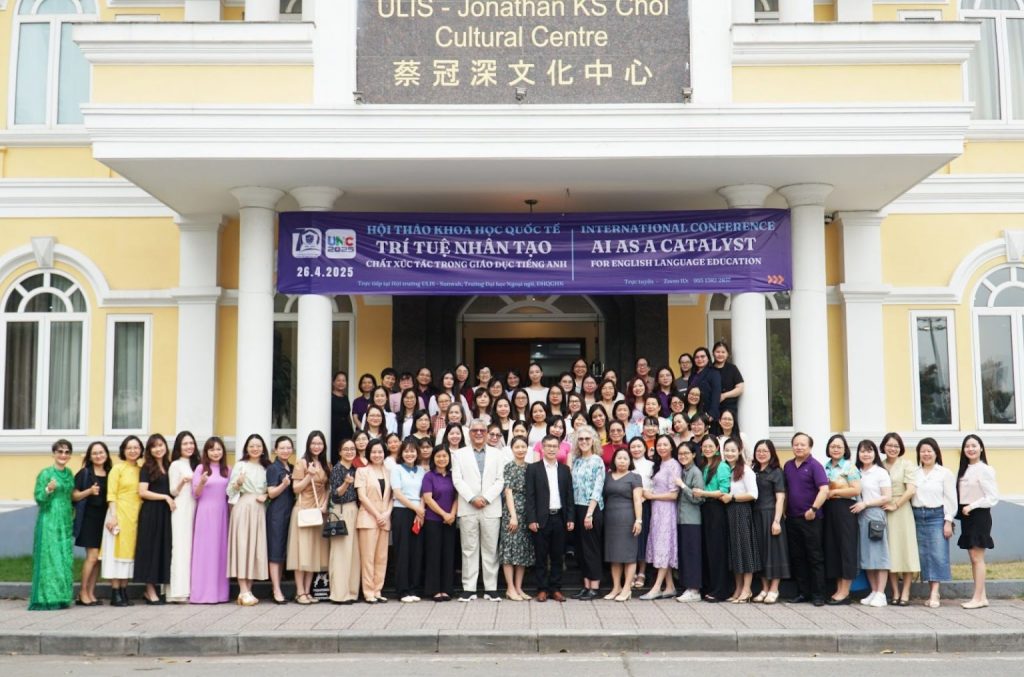
The conference concluded successfully. It offered valuable insights into education, teaching methodologies, language assessment, and English language research, opening new avenues for future academic exploration.
